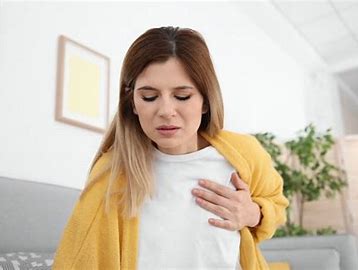
Protecting your heart when you’re in your 20s, 30s or 40s is
probably the last thing on your mind. But heart attacks can – and do – happen
to younger people.
Heart disease has been the world’s most common cause of
death for decades. Although we think of it as an older person’s disease because
your risk of heart disease increases with age, that’s not the whole story.
Research published in the American Heart Association’s
journal Circulation found that heart attacks are increasingly occurring
in younger people, especially women. The researchers studied more than 28,000
people hospitalised for heart attacks from 1995 to 2014. They found that the
rate of heart attacks in patients aged 35 to 54 had increased from 27 per cent
at the start of the study, to 32 per cent by the end.
How to protect your heart – whatever your age

There is no single cause for heart disease, but there are a
number of risk factors. It’s never too early to improve your heart health by
doing the following:
- Quit or reduce smoking. Smokers are three times more likely to die of a heart attack or sudden cardiac arrest.
- Improve your diet. What you eat and drink substantially affects four of the major heart disease risk factors – high cholesterol, high blood pressure, type 2 diabetes and obesity. A heart-healthy diet is low in saturated fats, salt, added sugar and alcohol and rich in plant foods like fruit, vegetables, wholegrains, nuts and seeds.
- Get active. Keeping physically active gives you double benefits. It improves blood flow in the vessels around the heart as well as controlling other heart disease risk factors including high blood pressure, high cholesterol and being overweight. Work your way up to 30 to 60 minutes of moderate physical activity most days of the week.
Seek treatment early
Heart disease is an older person’s disease that kills young
people. Getting treatment early is vital. Call emergency services if you
experience chest discomfort or pain. This can feel like uncomfortable pressure,
aching, numbness, squeezing, fullness or pain, which may spread to your arms,
neck, jaw or back. Other less obvious symptoms include a burning feeling in
your chest and shortness of breath.